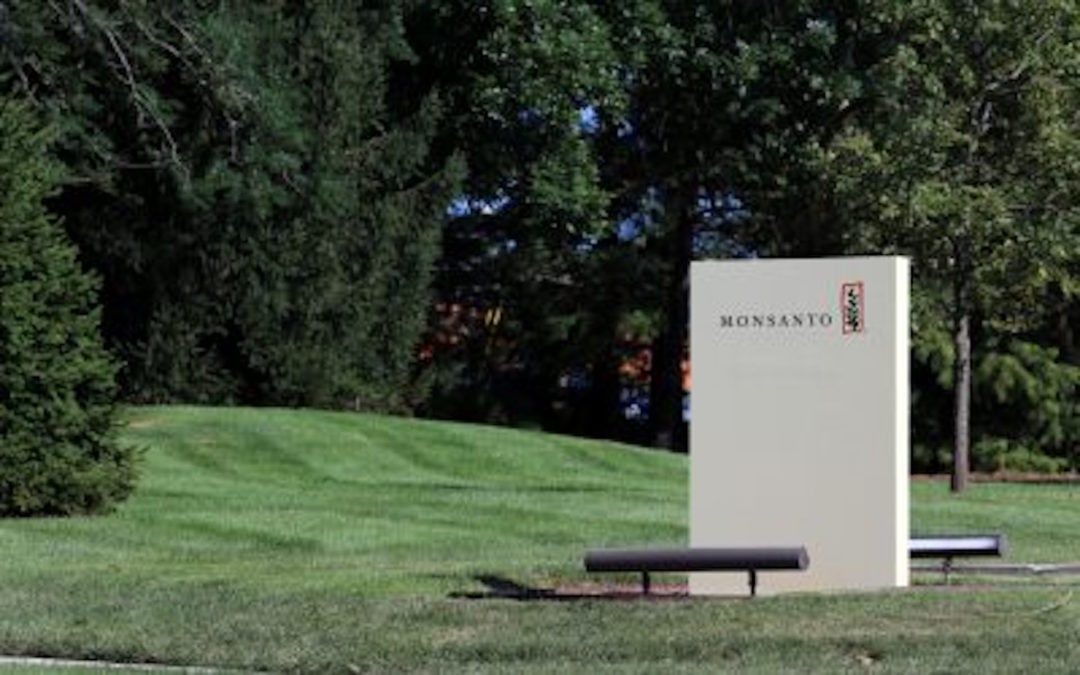
Bayer Faces Flood of Monsanto Glyphosate Suits

Bayer shares plummeted $12.5 billion (12%) the day after the verdict, while the company says it will appeal. Bayer bought the company in June for $62.5 billion and said it intended to stop using the Monsanto name.
Monsanto faces more than 5,000 similar lawsuits across the U.S., according to Reuters; The Guardian cites Johnson’s lawyers as saying Monsanto faces 4,000 similar lawsuits; the Wall Street Journal quotes Monsanto as being aware of 5,200 similar lawsuits.
Johnson’s case was filed in 2016, but, according to Reuters, was fast-tracked due to the severity of his cancer. His doctors say he is unlikely to live past 2020.
Johnson, the 46-year-old father of three, was required to apply Roundup up to 30 times per year during his work as a groundskeeper for a California public school. He was diagnosed with non-Hodgkin lymphoma in 2014.
Glyphosate is, according to The Guardian, the most widely used herbicide in the world, which Monsanto has been marketing as Roundup since 1974 as a weedkiller that would harm neither humans nor the environment.
One of the UK’s largest do-it-yourself retailers is reviewing the sale of Roundup weedkiller products amid mounting concerns about their use, reported The Guardian.
The science regarding glyphosate is inconsistent. A 2015 study published by the European Food Safety Authority concluded that “glyphosate is unlikely to pose a carcinogenic hazard to humans.” A 2000 study by Gary M. Williams,et al, published inRegulatory Toxicology and Pharmacologycame to the conclusion that, given the lack of “convincing” evidence for direct DNA damage, the multiple lifetime studies that have failed to demonstrate any tumorigenic potential for glyphosate, and the lack of toxicity in both acute and chronic studies, glyphosate is noncarcinogenic.
On the other hand, a 2015 study published by the International Agency for Research on Cancer, the cancer agency for the World Health Organization, came to the conclusion there was “limited evidence of carcinogenicity in humans for non-Hodgkin lymphoma” from glyphosate. The Pesticide Action Network International published a 96-page report in 2016 covering the countries in which glyphosate has poisoned humans and the environment.
With one foot in each camp, a 2005 study by Anneclaire J. De Roos,et al, published inEnvironmental Health Perspectivesfound that the only association glyphosate had with any kind of cancer was a suggested association with multiple myeloma, a blood cancer that targets plasma cells, as opposed to lymphatic cancer, which targets the lymphocytes.
Monsanto’s lawyer, George Lombardi, pointed out that scientific evidence says that glyphosate and glyphosate-based products don’t cause cancer, according to The Guardian, which also reported that Johnson’s attorney, Brent Wisner, brought as evidence internal Monsanto emails that proved that the company “rejected critical research and expert warnings over the years” and “fought science” while pursuing favorable research.
Wisner cited an email in which Monsanto employees brainstormed methods of combating critical studies, and decades-old emails in which Monsanto representatives began working on a press statement saying that Roundup carried no risk, right after a genotoxicity expert raised concerns about Roundup’s impacts on humans.

The editorial team at WholeFoods Magazine has decades of experiences reporting on natural products industry news, trends, and more. This national, monthly business-to-business magazine has been published continuously for nearly 40 years (the magazine was founded in 1977, and has been owned by Wainer Finest Communications since 1984). It is the longest-tenured media outlet of its kind in the natural products industry. The editorial focus at WholeFoods Magazine is, and always has been, on informing and educating members of the natural products industry.
The Magazine
Information
About Us
NOTE: WholeFoods Magazine is a business-to-business publication. Information on this site should not be considered medical advice or a way to diagnose or treat any disease or illness. Always seek the advice of a medical professional before making lifestyle changes, including taking a dietary supplement. The opinions expressed by contributors and experts quoted in articles are not necessarily those of the publisher or editors of WholeFoods.







